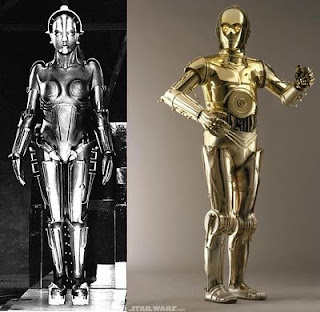3:10 TO YUMA (1957)
Squeaking in our November entry from guest writer John Osif who picks another interesting title - this time in connection with S2E7 of THE MANDALORIAN...
 |
| Photo by John Osif |
The Mandalorian – Season Two – Episode Seven – “The Believer”
One of the few storytelling moments I find agreeable and interesting in Rian Johnson’s divisive ‘The Last Jedi’ is this line of dialogue spoken by shady codebreaker DJ as he is revealed to have played both sides to his personal gain.
“Good guys, bad guys… Made-up words.”
This simple thought beautifully summarizes what is intriguing to me in this season of The Mandalorian, moral relativism. No one, except for one character in my opinion, in the Star Wars universe is incorruptible and very few are inherently evil. For me, this moral ambiguity provides a more interesting backdrop to tell richer Star Wars stories in, especially in this day and time of ethical vagueness.
In “The Believer” we find that Mando needs the assistance of Bill Burr’s Mayfeld, a carryover character from last season who double-crossed Mando and showed little personal moral fiber in doing so. Mayfeld, an ex-Imperial sharpshooter still has the necessary Imperial clearances Mando needs to infiltrate the closest Imperial base and discover Grogu’s current location. What unfolds is a surprising character development where Mayfeld, once one dimensional, takes a turn towards his humanity.
A moral awakening occurs when Mayfeld encounters his old Imperial Commander. A Commander who carelessly sacrificed many of Mayfeld’s fellow soldiers’ lives. Hearing his old leader coldly celebrate the deaths as one of his personal great accomplishments ignites a virtuous fire in Mayfeld. Perhaps even showing Mayfeld, for the first time, a true face of evil and what harm that evil can do. Mayfeld reacts the only way he can and kills the commander. In one swift act, maybe discovering his soul.
Bill Burr’s character transformation reminded me instantly of Glenn Ford’s morally grounded yet ruthless villain in 1957’s “3:10 to Yuma”. 3:10 to Yuma is a thrilling duel of character morality between two damaged but very human characters. Ford’s Wade is a charismatic rogue who has committed terrible crimes yet posses a touch of tainted honor. His nemesis in the film, Evans, is a stressed rancher seeking to find his own lost sense of self-worth by bringing the fugitive to justice.


Comments
Post a Comment